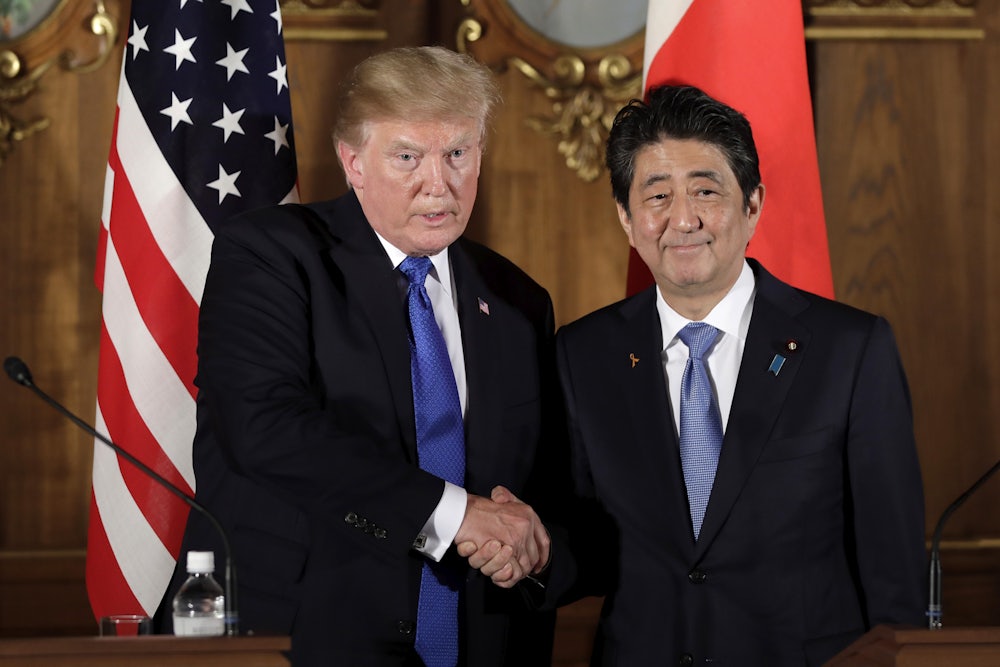This was supposed to be the week that the Trump administration showcased its foreign policy with the president giving a high profile speech at the annual United Nations General Assembly. But Trump’s speech provoked laughter when he used the occasion to boast that he’s accomplished perhaps more than any other administration in history. It was a potent reminder that, two years into Trump’s bid for an America First foreign policy, America has a diminished global presence. Even when America is not mocked, it can be safely ignored.
As Brookings Institution fellow Thomas Wright shrewdly argued in The Atlantic, the shrinking stature of America is due partly to the fact that Trump and his National Security Advisor John Bolton are focused on esoteric bureaucratic battles at the expense of having a coherent global strategy.
As Wright notes:
[Trump] had nothing new to offer on China or Iran or Europe. Bizarrely, but not unexpectedly, there was no mention of the central theme of the National Security Strategy—that America’s most pressing challenge is a geopolitical competition with Russia and China. He reprised his old themes of blaming allies. And he defaulted to the pet projects of John Bolton, his national-security adviser, a man motivated more by legal theories than by foreign policy and the national interest. So we got a plan for protecting American sovereignty from the multilateralists (although not from Russian political interference). Obscure agreements, such as the UN Global Compact for Migration, were named and vilified.
In sum, Trump and Bolton were “fighting theological arguments about the nature of sovereignty instead of shaping geopolitical outcomes.”
Even when Trump did try to influence global opinion on a substantive issue, he found no eager ears to heed him. Trump made a great show about warning of the dangers of Iran’s alleged nuclear ambitions and called for renewed economic embargoes.
As Barbara Slavin of the Atlantic Council noted in Axios, Trump’s anti-Iran comments were tinged by impotent rage because the world clearly didn’t care what he said. “The Trump administration is angry that most of the world—including key allies Britain, France and Germany—have rejected its withdrawal from the 2015 nuclear deal and are attempting to circumvent sanctions on Iran,” Slavin observes. “But overemphasizing the challenge Iran poses only further undercuts U.S. credibility and makes it easier for other nations, such as China, to actively oppose U.S. policy.”
The coup de grâce of Trump’s failed diplomacy came when he made a bizarre joke linking his embattled Supreme Court nominee Brett Kavanaugh and Japanese Prime Minister Shinzo Abe:
Among other things, for Trump to drag Abe into this crisis over Kavanaugh is really out of bounds diplomatically for any country but especially for the Japanese who are protocol obsessed.
— David Nakamura (@DavidNakamura) September 26, 2018
Perhaps the best America can hope for is that Japan and the rest of the world continues to ignore Trump.
